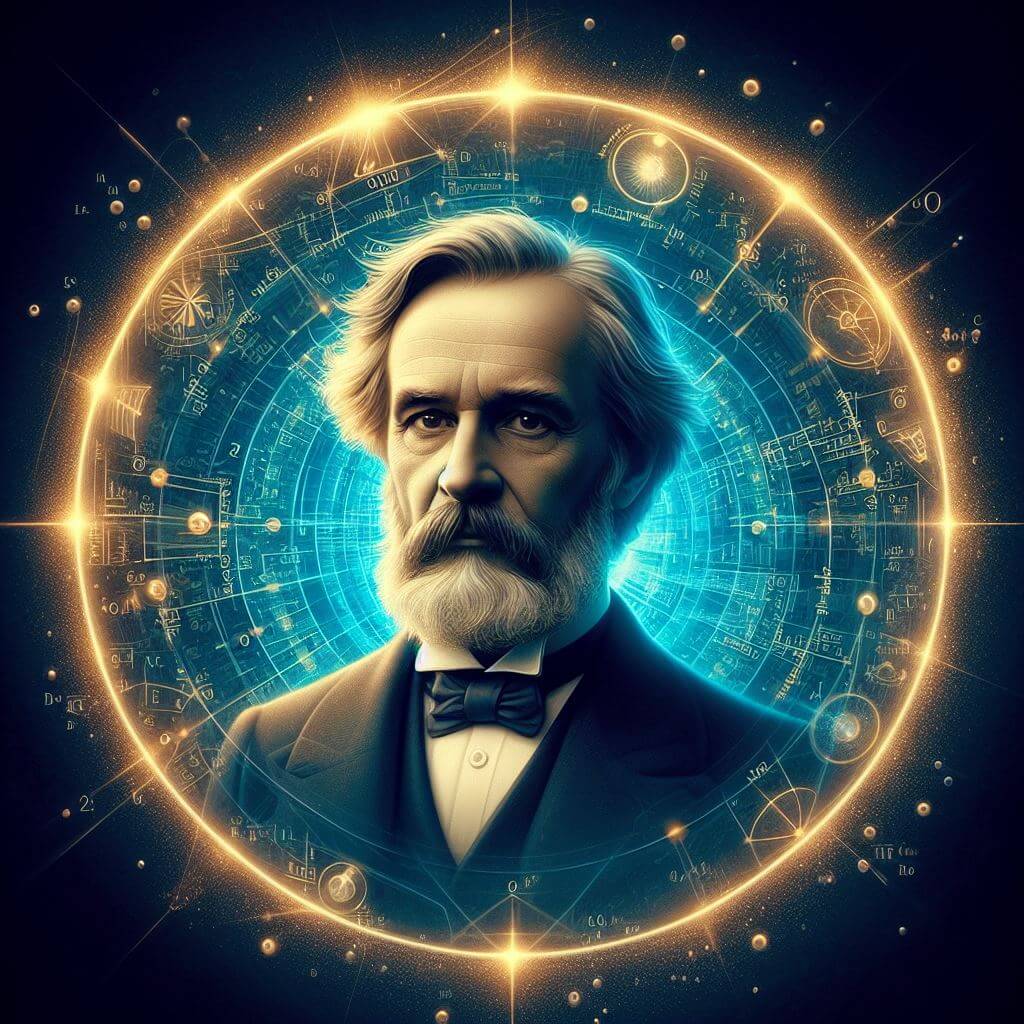Explore the life and legacy of Max Planck, the father of quantum theory, whose groundbreaking work revolutionized our understanding of the atomic world. Learn about his contributions to physics, from the discovery of energy quanta to inspiring future generations of scientists.

Max Planck stands as a monumental figure in the world of physics, renowned for pioneering the quantum theory that revolutionized our understanding of the atomic and subatomic worlds. Born on April 23, 1858, in Kiel, Germany, Planck’s early life was marked by a profound interest in both science and music, showcasing his versatile genius from a young age.
Despite his musical talent, Planck’s passion for physics guided his academic journey. He pursued his studies at the University of Munich and later at the University of Berlin, where he delved into the mysteries of thermodynamics and the theory of heat. His educational path laid the groundwork for a career that would change the course of physics.
Embarking on an academic career, Planck secured a position as a professor at the University of Berlin. In this role, he not only contributed significantly to the field of physics through his research but also influenced a generation of students and contemporaries with his innovative ideas.
One of Planck’s most significant contributions was the introduction of quantum theory in 1900. This groundbreaking work proposed that energy is emitted in discrete units or “quanta,” challenging the traditional views of classical physics and leading to the development of quantum mechanics.
Planck’s legacy is not just in his scientific achievements but also in his resilience and dedication to research, even in the face of personal tragedies and the tumultuous times of World War I and II. His work earned him the Nobel Prize in Physics in 1918, cementing his status as the father of quantum theory.
In the dawn of the 20th century, Max Planck was confronted with a perplexing scientific problem: the phenomenon of black-body radiation. Traditional physics could not explain why objects at a constant temperature emit radiation in different wavelengths in a way that was observed. This dilemma challenged the very foundations of classical mechanics and thermodynamics.
Planck’s revolutionary breakthrough came in 1900, when he proposed that energy is not continuous, but rather quantized, being emitted in discrete packets or “quanta”. This was encapsulated in his iconic equation E=hν, where E represents energy, h is Planck’s constant, and ν is the frequency of radiation. This hypothesis not only solved the black-body radiation problem but also laid the cornerstone for the development of quantum mechanics, a field that would fundamentally alter our understanding of the universe.
Planck’s ingenuity was recognized in 1918 when he was awarded the Nobel Prize in Physics for his discovery of energy quanta. This accolade underscored the monumental shift his ideas had prompted in the scientific community, marking the beginning of a new era in physics.
However, Planck’s life was not without its personal challenges, especially during World War I. He faced the heart-wrenching loss of his children, enduring personal tragedies that would have overwhelmed any ordinary person. Yet, Planck remained steadfast in his scientific pursuits, even as the war and its aftermath shook the world around him.
In his later years, Planck found himself in opposition to the Nazis, facing challenges with courage and integrity during World War II. Despite the tumultuous times, he continued to contribute to physics until his death on October 4, 1947, in Göttingen, Germany.
Max Planck’s legacy transcends his time, as his work laid the foundational principles for quantum mechanics. His discovery of quantized energy levels has paved the way for countless scientific advancements, from the understanding of atomic and subatomic particles to the development of technologies that shape our daily lives. Planck’s life and work exemplify the power of human curiosity and intellect to unravel the mysteries of the universe, leaving an indelible mark on the world of science.
Max Planck’s introduction of quantum theory marked a seismic shift in the landscape of physics, transforming our comprehension of atomic and subatomic processes. This revolutionary theory challenged the prevailing norms of classical physics, introducing the concept that energy is quantized, thus providing a framework to understand phenomena that were previously inexplicable. Planck’s insights laid the groundwork for quantum mechanics, a field that has since unraveled the intricate workings of the universe at its most fundamental level.
The ripple effects of Planck’s work were felt far and wide, influencing a generation of physicists who would push the boundaries of science even further. Among them was Albert Einstein, who, inspired by Planck’s quantum theory, developed the photoelectric effect theory—another cornerstone of quantum mechanics. Planck’s influence thus permeated through the scientific community, igniting a revolution in the way we perceive the physical world.
Throughout his illustrious career, Planck was the recipient of numerous prestigious awards and honors, a testament to his monumental contributions to science. He was awarded the Lorentz Medal in 1927, recognizing his profound impact on theoretical physics. Later, in 1929, Planck received the Copley Medal, one of the most esteemed scientific accolades, further solidifying his legacy as a pioneer of quantum physics.
In conclusion, Max Planck’s contributions to physics are immeasurable. His pioneering work on quantum theory not only revolutionized our understanding of atomic and subatomic processes but also laid the foundation for numerous technological advancements that define our modern world. From the computers and smartphones we use daily to the development of medical imaging techniques, the implications of quantum mechanics are vast and pervasive.
Planck’s legacy serves as a beacon of inspiration, encouraging us to continue exploring the mysteries of the universe with curiosity and perseverance. As we delve deeper into the realms of quantum mechanics, we unlock new potentials for innovation and discovery, shaping the future of technology and furthering our understanding of the cosmos. Max Planck’s indelible mark on the scientific community reminds us of the transformative power of human intellect and curiosity, urging us to explore beyond the boundaries of known physics.